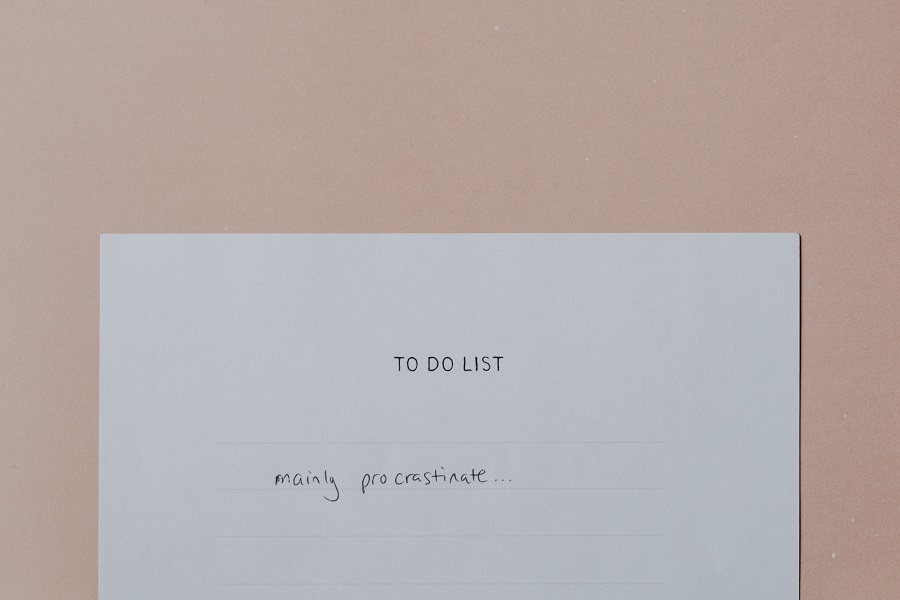
Procrastination is usually defined as the act of delaying various kinds of tasks until the last minute, or past their deadline. Many people can face such a thing and not even indicate that. For instance, around 20% of U.S. adults are chronic procrastinators. Ignoring the potential negative consequences of procrastination can lead to stress and anxiety. There are some reasons for procrastination and potential ways of making planned tasks less stressful.
So why do we procrastinate?
There are many reasons why people procrastinate. We often come up with many rationalizations or excuses to justify our behavior. It is usually related to wrong estimating of the tasks, time management, an unclear vision of the tasks, and so on.
So what causes procrastination?
- Not being able to manage the time
- Under-estimating tasks
- Over-Estimating tasks
- Blaming sickness or poor health
- Forgetting
- Having a lack of motivation
- Being in the habit of waiting until the last minute
- Feeling challenged
- Not knowing what needs to be done
- Having a lack of self-discipline
- Refusing to accept any standard short of perfection
The reasons mentioned above might be difficult to understand sometimes, especially when it comes to our habits and fears, which might become a huge part of our routine imperceptibly. Furthermore, they can lead to stress and anxiety. There are some ways to avoid that.
How to stop procrastinating and avoid unnecessary stress
As discussed before, procrastination can lead to tension and nervousness. Usually, it happens because of the fear of not finishing things until the upcoming deadline. Procrastination can be a great distraction in a short-term perspective. On the other hand, it can lead us to guilt, which can result in initial stress. An untimely submission may result in late presentations, poor grades, and other failures which we can easily project in our minds before it actually happens.
Here are 8 anti-procrastination tips that might help you:
- Set clear goals. Setting achievable and clear goals can help you to increase your motivation and feel sure about what you are doing.
- Break the task down into smaller parts. This might help you to boost your confidence in order to take on larger tasks.
- Change your approach towards the goal. This might help if you to stop thinking of the task as a way to fail. On the contrary, think of the task as a way to learn and grow. This will help you to increase your motivation as well.
- Tackle the tasks as soon as they arise. The approach of “acting as you go” could help you to make things happen faster instead of building them up over another day.
- Talk to someone who already completed a similar task. It could be your colleague or someone who might have related challenges. It could help you to face your fears and break the task down into smaller parts, so you could work up while building a clear and strategic approach towards that.
- Do breaks. It always helps to come back to the task with a way fresher perspective and clear your head as well. Especially if you’re feeling overwhelmed by the task.
- Avoid Distractions From Technology. Try to avoid sitting near a TV or using your social media while you work. It might help you to reduce the time spent on a task and develop your productivity.
- Reward yourself. Make sure you notice how good it is to finish things! When you are finished with the task reward yourself with some kind of treat – candy, ice cream cake, or whatever makes you feel happy.
It is always possible to combine more than one of these techniques. You can start by focusing on a few that are most relevant to your case.
Furthermore, writing things down might help a lot. Not only to set clear goals (1st technique) but also to make a proper combination of the mentioned ways to overcome procrastination. You can set a detailed plan on how you are going to stick to the plan in general and when exactly you are going to reward yourself or put social media aside and so on.
You might face the fear of not doing these techniques perfectly, but always remember that it is important to make at least tiny steps, even if they are not happening in the way you would like to at first. Sometimes it is even good to find a friend or another person who might face the same issues and try to stick to the plan together. So, you might find the process, even more, involving knowing that you both are aware of each other’s progress.

From scaling mountain peaks to savouring exotic flavours, I’m a passionate explorer with an insatiable appetite for adventure and good food. As an Outdoor Adventure and Travel Editor, I’m constantly seeking new experiences that ignite my senses and broaden my horizons. Through my blog, I share captivating travel tales, mountain-tested advice, healthy food inspiration, and training tips to empower fellow adventurers on their own journeys of discovery.
Follow Sam’s adventures on Instagram @sams_adventures_x